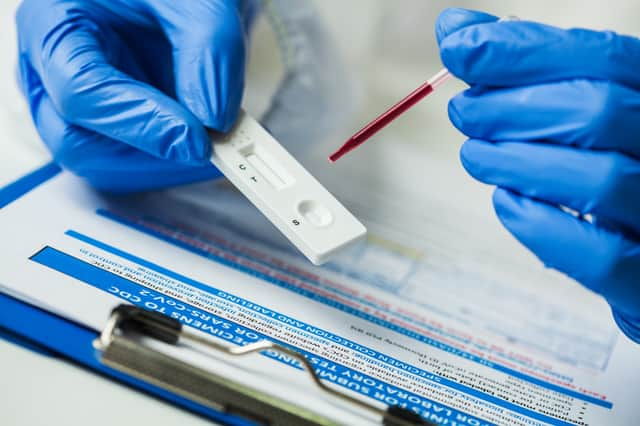Covid-19 antibodies could decline sharply after recovery - the new scientific study explained


New research has found that immunity to Covid-19 may last as little as one month for those who have recovered from the virus.
Scientists from Nanjing University Medical School in China studied antibody responses against Sars-CoV-2 (the virus that causes Covid-19) in 19 non-severe and seven severe Covid-19 patients for seven weeks.
Advertisement
Hide AdAdvertisement
Hide AdWhile most patients developed antibodies, the virus neutralising efficiency of these declined significantly after just three to four weeks, following discharge from hospital. This suggests that recovered patients would eventually find themselves just as vulnerable to coronavirus as they were before initially contracting it.
While the study found that a large proportion (80.7 per cent) of recovered Covid-19 patients showed evidence of some antibody neutralisation activity against Sars-CoV-2 (at varying levels), the remaining 19.3 per cent did not develop any immunity.
Why are antibodies important?
In their report, the authors of the study wrote, "Understanding the adaptive responses where the body makes antibodies that specifically bind to the SARS-CoV-2 among Covid-19 patients provides fundamental information for developing effective treatment and preventive vaccine."
As there is currently no vaccine to protect against coronavirus, it is vital that scientists continue to study antibody responses in sufferers, in order to collect information about how best to fight the virus.
Advertisement
Hide AdAdvertisement
Hide AdDanny Altmann, professor of immunology at Imperial College London, and British Society for Immunology spokesman, told the Press Association, "Studies like this are a vital part of the ‘work-in-progress’ to make sense of who has immunity and how long for.
"Once again, evidence shows that the half-life of these antibodies in the blood is not particularly sustained.
"We don’t know to what extent this is bad news unless we know the extent to which the white blood cells that make the antibody (B cells) are up and ready to defend against any repeat attack."
How do vaccines work?
According to the NHS, "Vaccines teach your immune system how to create antibodies that protect you from diseases.
Advertisement
Hide AdAdvertisement
Hide Ad"It's much safer for your immune system to learn this through vaccination than by catching the diseases and treating them.
"Once your immune system knows how to fight a disease, it can often protect you for many years."